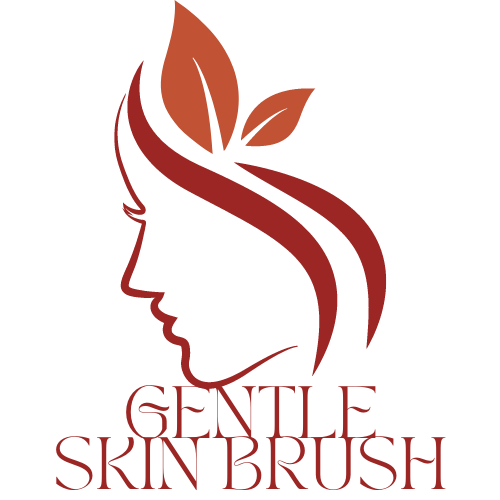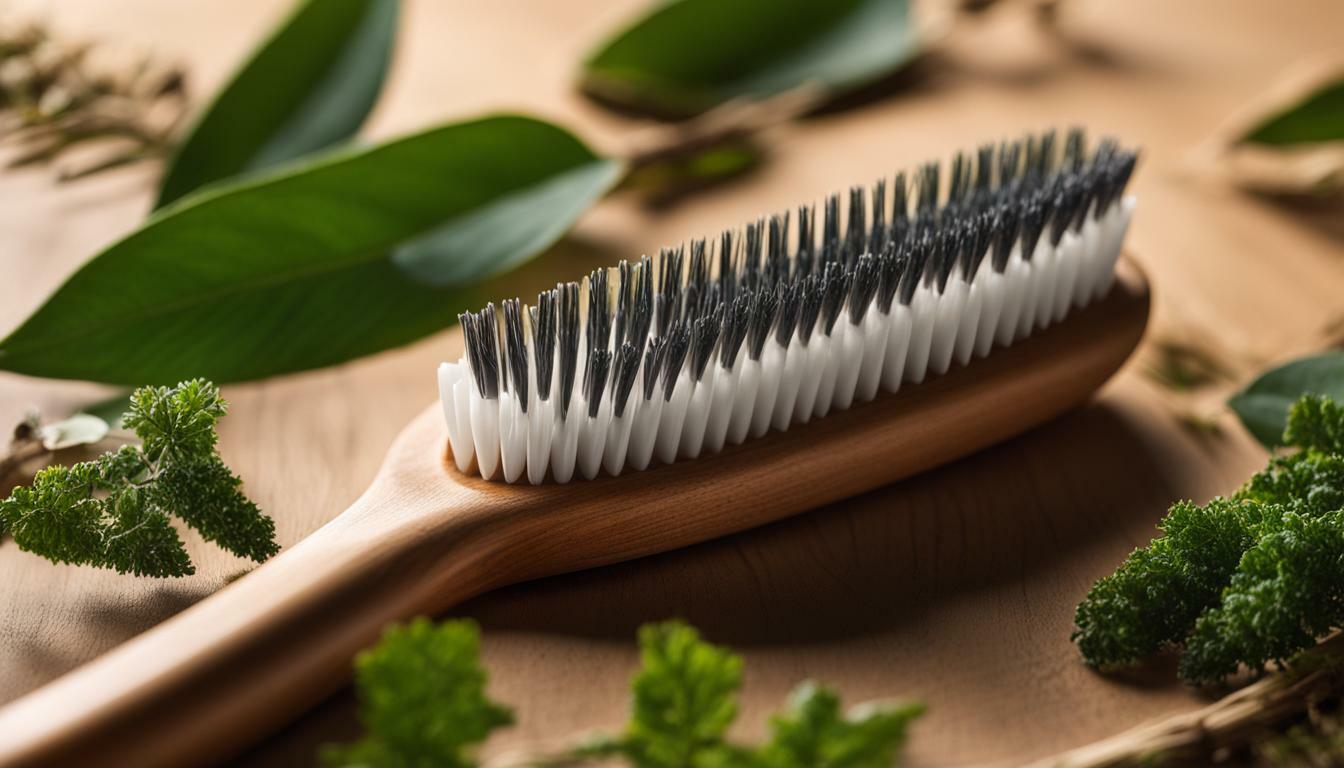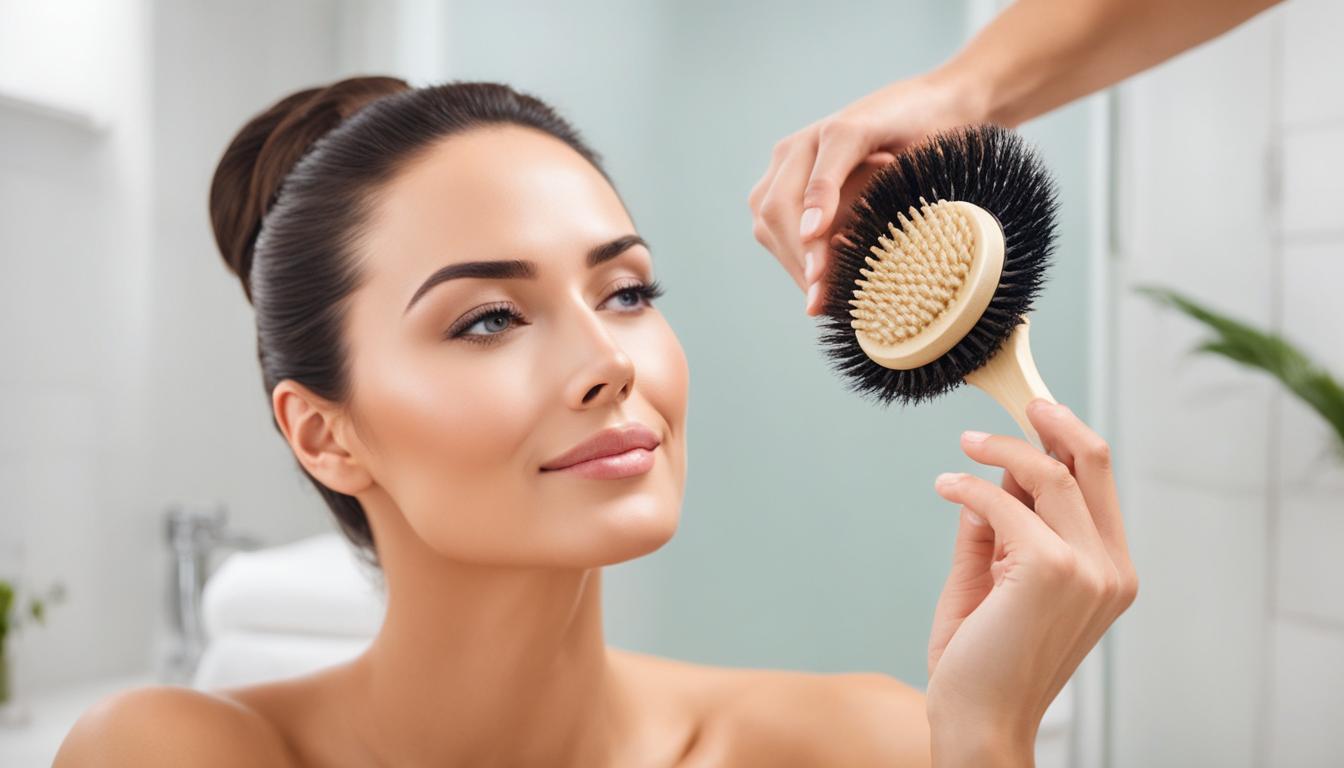When it comes to oral hygiene, it’s important to choose the right toothbrush. One question that often arises is whether wooden toothbrushes are good for brushing.
Contents
- 1 The Benefits of Wooden Toothbrushes
- 2 Effectiveness of Wooden Toothbrushes
- 3 The Environmental Impact of Plastic Toothbrushes
- 4 The Sustainability of Wooden Toothbrushes
- 5 The Natural Brushing Experience
- 6 Different Brands of Wooden Toothbrushes
- 7 Proper Maintenance and Cleaning
- 8 Conclusion: Are Wooden Tooth Brushes Good For Brushing?
- 9 FAQ
- 9.1 Are wooden toothbrushes as effective as plastic toothbrushes for cleaning teeth?
- 9.2 How long do wooden toothbrushes last?
- 9.3 What is the environmental impact of plastic toothbrushes?
- 9.4 Are wooden toothbrushes made from sustainable materials?
- 9.5 Do wooden toothbrushes offer a natural brushing sensation?
- 9.6 What are some popular brands of wooden toothbrushes?
- 9.7 How should wooden toothbrushes be maintained and cleaned?
- 10 Source Links
Key Takeaways:
- Wooden toothbrushes are an eco-friendly alternative to plastic toothbrushes.
- They are just as effective in cleaning teeth and can last as long as traditional toothbrushes.
- Plastic toothbrush production contributes to environmental damage and releases harmful chemicals.
- Wooden toothbrushes are made from sustainable materials and can be recycled.
- They offer a natural brushing sensation and do not contain chemicals like bisphenol A.
Wooden toothbrushes have gained popularity as an eco-friendly option for oral care. Unlike plastic toothbrushes, which can take hundreds of years to decompose, wooden toothbrushes are biodegradable and more sustainable for the environment. They are made from renewable resources and do not contribute to the build-up of plastic waste in landfills and oceans.
Not only are wooden toothbrushes good for the planet, but they are also effective in cleaning teeth. The bristles of wooden toothbrushes are made from high-quality materials that effectively remove plaque and food particles from the teeth and gums. They provide a thorough cleaning experience, leaving your mouth feeling fresh and clean.
Another advantage of wooden toothbrushes is their natural brushing sensation. Unlike some plastic toothbrushes that can feel harsh or artificial, wooden toothbrushes offer a more gentle and comfortable brushing experience. The natural bristles and wood handle provide a soothing sensation while promoting good oral health.
Furthermore, wooden toothbrushes do not contain harmful chemicals like bisphenol A (BPA), which is commonly found in many plastic products. BPA has been linked to various health concerns, including hormone disruption and potential risks to the reproductive system. By choosing wooden toothbrushes, you can avoid exposure to these potentially harmful chemicals.
There are several brands of wooden toothbrushes available in the market, including Dubois, La Maline, Caliquo, Le père Lucien, and Elgydium. These brands offer a range of options to suit individual preferences, from soft to medium bristles and ergonomic designs.
To ensure the longevity and effectiveness of your wooden toothbrush, proper maintenance and regular cleaning are essential. It is recommended to rinse the brush thoroughly after each use and allow it to dry in an upright position. Avoid storing it in a moist environment to prevent the growth of mold or bacteria.
In conclusion, wooden toothbrushes are a good choice for brushing. They are not only eco-friendly and sustainable but also offer effective cleaning and a natural brushing sensation. By making the switch to wooden toothbrushes, you can contribute to a healthier planet while maintaining good oral hygiene.
The Benefits of Wooden Toothbrushes
Wooden toothbrushes offer several benefits that make them a viable choice for those seeking eco-friendly dental hygiene alternatives. Not only are they a sustainable option, but they also provide an effective and natural brushing experience.
One of the key advantages of wooden toothbrushes is their eco-friendliness. Unlike plastic toothbrushes, which take hundreds of years to decompose, wooden toothbrushes are biodegradable and can be easily composted. This means that they have a significantly lower environmental impact and contribute less to landfill waste.
Furthermore, wooden toothbrushes are made from sustainable materials such as bamboo, which is a fast-growing and renewable resource. This makes them a more environmentally conscious choice compared to their plastic counterparts. Additionally, some brands even use recycled or upcycled materials in the production of their toothbrushes, further reducing their carbon footprint.
Aside from their eco-friendly nature, wooden toothbrushes are equally effective in cleaning teeth. They have bristles that are gentle yet efficient in removing plaque and maintaining oral hygiene. These bristles are often made from natural materials like boar hair or plant-based fibers, offering a natural brushing sensation that is free from chemicals.
| Key Benefits of Wooden Toothbrushes |
|---|
| Eco-friendly and biodegradable |
| Sustainable materials |
| Natural brushing experience |
| Gentle yet efficient bristles |
In conclusion, wooden toothbrushes provide a sustainable and effective alternative to plastic toothbrushes. With their eco-friendly nature, sustainable materials, natural brushing sensation, and gentle bristles, they offer numerous benefits for both the environment and your oral hygiene. By choosing a wooden toothbrush, you can make a small yet significant contribution to reducing plastic waste and promoting a more sustainable future.
Effectiveness of Wooden Toothbrushes
Contrary to popular belief, wooden toothbrushes are just as effective as traditional toothbrushes when it comes to removing plaque and maintaining oral hygiene. These eco-friendly alternatives provide a natural brushing sensation while being gentle on sensitive teeth.
Wooden toothbrushes are crafted from sustainable materials, making them an environmentally conscious choice. Unlike plastic toothbrushes, which contribute to pollution and harm marine life, wooden toothbrushes are biodegradable and do not release harmful chemicals during production or disposal.
One of the key advantages of wooden toothbrushes is their ability to last just as long as standard toothbrushes. With proper maintenance and regular cleaning, these toothbrushes can effectively clean your teeth for the recommended three months before needing replacement.
| Advantages of Wooden Toothbrushes |
|---|
| Environmentally friendly and biodegradable |
| Sustainable materials and recyclable |
| Comparable effectiveness to traditional toothbrushes |
| Natural brushing sensation |
| Gentle on sensitive teeth |
When it comes to choosing a wooden toothbrush, several brands offer high-quality options. Dubois, La Maline, Caliquo, Le père Lucien, and Elgydium are renowned brands that prioritize sustainability and provide an excellent brushing experience.
To ensure the longevity and effectiveness of your wooden toothbrush, proper maintenance and regular cleaning are essential. Rinse the toothbrush thoroughly after use, store it in a dry area, and replace it every three months or if the bristles show sign of wear.
Wooden Toothbrushes: A Sustainable Choice for Your Oral Care
The Environmental Impact of Plastic Toothbrushes
Plastic toothbrushes not only contribute to environmental damage but also release harmful chemicals into the environment during production and disposal. The production of plastic toothbrushes involves the extraction of non-renewable resources, such as petroleum, which leads to deforestation and habitat destruction. Additionally, the manufacturing process generates greenhouse gas emissions that contribute to climate change.
Furthermore, the disposal of plastic toothbrushes poses a significant problem. Most plastic toothbrushes are not recyclable due to their complex composition, which includes a combination of different materials. As a result, they end up in landfills, where they take hundreds of years to decompose, adding to the already overwhelming amount of plastic waste in our environment. During this decomposition process, plastic toothbrushes release harmful chemicals, including bisphenol A (BPA), into the soil and water, further polluting our ecosystems.
To understand the magnitude of the issue, consider that billions of plastic toothbrushes are discarded worldwide each year. These small items may seem insignificant, but their collective impact is devastating. Plastic toothbrushes contribute to the pollution of our oceans, pose a threat to marine life, and have even been found in the stomachs of marine animals, causing harm and death.
Choosing sustainable alternatives, such as wooden toothbrushes, can help reduce the environmental damage caused by plastic toothbrushes. By opting for wooden toothbrushes made from sustainable materials, like bamboo, you can minimize your ecological footprint. Wooden toothbrushes are biodegradable, meaning they can naturally break down over time without harming the environment. They can also be recycled or composted, further reducing waste.
| Environmental Impact of Plastic Toothbrushes | Wooden Toothbrushes |
|---|---|
| Contribute to deforestation and habitat destruction | Made from sustainable materials like bamboo |
| Generate greenhouse gas emissions | Biodegradable and can be recycled or composted |
| Take hundreds of years to decompose | Naturally break down without harming the environment |
| Release harmful chemicals during decomposition | Chemical-free, do not contain bisphenol A (BPA) |
In conclusion, plastic toothbrushes have a significant environmental impact, contributing to pollution, habitat destruction, and the release of harmful chemicals. By switching to eco-friendly alternatives like wooden toothbrushes, you can make a positive difference for the planet. Wooden toothbrushes offer the same effectiveness in oral hygiene while minimizing environmental damage and promoting sustainability.
The Sustainability of Wooden Toothbrushes
Unlike plastic toothbrushes, wooden toothbrushes are made from sustainable materials and can be recycled, making them a more environmentally friendly choice. Wood is a renewable resource that can be harvested responsibly, ensuring minimal impact on the environment. By opting for a wooden toothbrush, you are reducing your carbon footprint and contributing to a more sustainable future.
In addition to being made from sustainable materials, wooden toothbrushes are also biodegradable. When disposed of properly, they break down naturally without releasing harmful chemicals into the environment. This is in stark contrast to plastic toothbrushes, which contribute to the growing problem of plastic pollution and can take hundreds of years to decompose.
The production process of wooden toothbrushes also tends to have a lower environmental impact compared to plastic toothbrushes. Plastic toothbrush manufacturing involves the extraction of non-renewable resources like petroleum, which further depletes our natural resources and contributes to climate change. Wooden toothbrushes, on the other hand, often use sustainably sourced wood and have a smaller carbon footprint.
By choosing a wooden toothbrush, you are not only taking care of your oral health but also making a conscious decision to protect the planet. So why not make the switch to a more sustainable and eco-friendly option for your dental hygiene routine?
| Wooden Toothbrush Brands |
|---|
| Dubois |
| La Maline |
| Caliquo |
| Le père Lucien |
| Elgydium |
The Natural Brushing Experience
One of the advantages of using a wooden toothbrush is the natural brushing sensation it provides, free from chemicals like bisphenol A. Unlike plastic toothbrushes, wooden ones have bristles that are softer and more gentle on the teeth and gums. The natural texture of the wooden bristles creates a unique brushing experience that many people find more pleasant and comfortable.
Additionally, wooden toothbrushes do not contain any synthetic materials or harmful chemicals, making them a safer and healthier option for oral hygiene. The absence of bisphenol A, a chemical commonly found in plastic products, eliminates the risk of exposure to potential toxins and reduces the environmental impact.
The use of sustainable materials in wooden toothbrushes further enhances the natural brushing experience. Many wooden toothbrushes are made from bamboo, a fast-growing plant that is highly renewable and biodegradable. This makes them an eco-friendly choice, as the cultivation of bamboo does not contribute to deforestation or harm natural habitats.
Wooden toothbrushes also have the advantage of being fully recyclable. After their lifespan is over, they can be disposed of in an environmentally friendly manner, reducing waste and minimizing the carbon footprint. By choosing a wooden toothbrush, you can make a small but significant contribution to a more sustainable future.
| Brand | Description |
|---|---|
| Dubois | Offers a wide range of wooden toothbrushes with various bristle options |
| La Maline | French brand known for its eco-friendly and biodegradable oral care products |
| Caliquo | Specializes in sustainable toothbrushes made from bamboo |
| Le père Lucien | Handcrafted wooden toothbrushes with natural bristles |
| Elgydium | Offers wooden toothbrushes designed to cater to specific oral care needs |
To ensure optimum oral hygiene, it is important to properly maintain and clean your wooden toothbrush. After each use, rinse it thoroughly with water to remove any toothpaste residue. Store the toothbrush in an upright position, allowing it to air dry naturally between uses. Avoid keeping it in a damp or enclosed space as this can promote the growth of bacteria.
In conclusion, wooden toothbrushes offer a natural brushing sensation, free from harmful chemicals, and are a sustainable and eco-friendly option for dental hygiene. Choose a wooden toothbrush to enjoy a more environmentally conscious and enjoyable brushing experience.
Different Brands of Wooden Toothbrushes
There are various brands of wooden toothbrushes available in the market, each offering its unique features and benefits. If you are looking to make a switch to a more sustainable and eco-friendly option for your oral care routine, these brands are worth considering.
Dubois: Dubois toothbrushes are handcrafted using high-quality, sustainably sourced wood. They feature soft bristles made from natural fibers, providing a gentle yet effective cleaning experience.
La Maline: La Maline offers a range of wooden toothbrushes made from beechwood, a renewable resource. Their ergonomic design and medium bristles ensure a comfortable and thorough brushing session.
Caliquo: Caliquo toothbrushes are made from biodegradable bamboo, making them an excellent choice for those seeking a plastic-free alternative. These brushes come with activated charcoal-infused bristles, known for their natural teeth whitening properties.
Le père Lucien: Le père Lucien toothbrushes are crafted with precision from sustainably harvested French beechwood. They feature extra soft bristles, making them ideal for individuals with sensitive gums or dental issues.
Elgydium: Elgydium offers wooden toothbrushes made from FSC-certified beechwood. They boast a compact head with medium bristles, ensuring efficient plaque removal and maintaining optimal dental hygiene.
| Brand | Material | Bristle Type | Features |
|---|---|---|---|
| Dubois | High-quality, sustainably sourced wood | Soft | Handcrafted, gentle cleaning experience |
| La Maline | Beechwood | Medium | Ergonomic design, thorough cleaning |
| Caliquo | Biodegradable bamboo | Activated charcoal-infused | Plastic-free, natural teeth whitening properties |
| Le père Lucien | Sustainably harvested French beechwood | Extra soft | Ideal for sensitive gums |
| Elgydium | FSC-certified beechwood | Medium | Efficient plaque removal |
When choosing a wooden toothbrush, consider your specific needs and preferences to find the brand that suits you best. Remember, the switch to wooden toothbrushes not only benefits your oral health but also contributes to a healthier planet.
Proper Maintenance and Cleaning
To ensure the longevity and effectiveness of your wooden toothbrush, it is essential to follow proper maintenance and cleaning practices. Although wooden toothbrushes are durable, they require a little extra care compared to their plastic counterparts.
Firstly, it is important to store your wooden toothbrush in a dry area. Excess moisture can cause the wood to warp and develop mold. After each use, gently rinse the bristles under running water to remove any remaining toothpaste or debris. Shake off any excess water and pat the bristles dry with a towel. Avoid leaving the toothbrush in a damp environment, such as a closed container, as this can promote bacterial growth.
In addition to regular rinsing, it is recommended to deep clean your wooden toothbrush at least once a week. One method is to soak the bristles in a mixture of equal parts water and vinegar for a few minutes. The vinegar helps to sanitize the bristles while removing any built-up residue. After soaking, rinse the toothbrush thoroughly and allow it to air dry completely before using it again.
Remember to replace your wooden toothbrush every three to four months or when the bristles start to fray. This ensures optimal cleaning and prevents bacteria buildup. When it is time to dispose of your toothbrush, rest easy knowing that wooden toothbrushes are biodegradable and can be composted. By choosing a wooden toothbrush and adopting proper maintenance and cleaning habits, you are making a positive impact on the environment while maintaining your dental hygiene.
| Proper Maintenance Tips for Wooden Toothbrushes |
|---|
| Store in a dry area |
| Rinse and pat dry after each use |
| Deep clean weekly with vinegar and water mixture |
| Replace every three to four months |
| Dispose of in compost |
Conclusion: Are Wooden Tooth Brushes Good For Brushing?
In conclusion, wooden toothbrushes are an excellent choice for brushing, offering a natural and effective alternative to traditional toothbrushes while also contributing to eco-friendly dental hygiene. These eco-friendly toothbrushes are made from sustainable materials and are biodegradable, making them a perfect option for those who are conscious of their environmental impact.
Not only are wooden toothbrushes good for the planet, but they are also just as effective in cleaning teeth as their plastic counterparts. They have durable bristles that effectively remove plaque and food particles, ensuring a thorough cleaning experience every time. So you can rest assured that you are maintaining proper oral hygiene while reducing your carbon footprint.
By choosing wooden toothbrushes, you are actively reducing the environmental damage caused by plastic toothbrush production. Plastic toothbrushes contribute to pollution and take hundreds of years to break down, releasing harmful chemicals into the environment. Wooden toothbrushes, on the other hand, are biodegradable and can be recycled, minimizing their impact on nature.
Additionally, wooden toothbrushes offer a natural brushing sensation without the presence of chemicals like bisphenol A (BPA). You can enjoy a clean and healthy mouth without exposing yourself to potentially harmful substances, ensuring a more organic dental experience.
In summary, wooden toothbrushes are not only a sustainable and eco-friendly choice but also a reliable option for maintaining good oral hygiene. With their effectiveness in cleaning teeth, biodegradability, and absence of harmful chemicals, they provide an ideal solution for those seeking a more natural and sustainable toothbrush option. So why not make the switch to wooden toothbrushes and make a positive impact on both your oral health and the environment?
FAQ
Are wooden toothbrushes as effective as plastic toothbrushes for cleaning teeth?
Yes, wooden toothbrushes are just as effective as plastic toothbrushes in cleaning teeth.
How long do wooden toothbrushes last?
Wooden toothbrushes can last as long as traditional toothbrushes with proper care and maintenance.
What is the environmental impact of plastic toothbrushes?
Plastic toothbrushes contribute to environmental damage through their production and disposal, releasing harmful chemicals in the process.
Are wooden toothbrushes made from sustainable materials?
Yes, wooden toothbrushes are made from sustainable materials and can be recycled.
Do wooden toothbrushes offer a natural brushing sensation?
Yes, wooden toothbrushes offer a natural brushing sensation and do not contain chemicals like bisphenol A.
What are some popular brands of wooden toothbrushes?
Some popular brands of wooden toothbrushes include Dubois, La Maline, Caliquo, Le père Lucien, and Elgydium.
How should wooden toothbrushes be maintained and cleaned?
Wooden toothbrushes should be properly maintained and cleaned regularly for optimal oral hygiene.





Leave a Reply